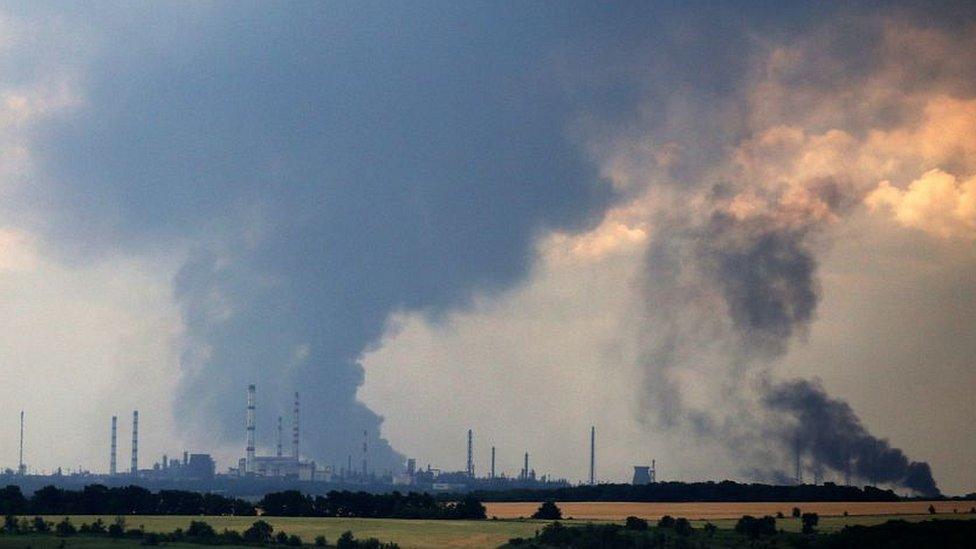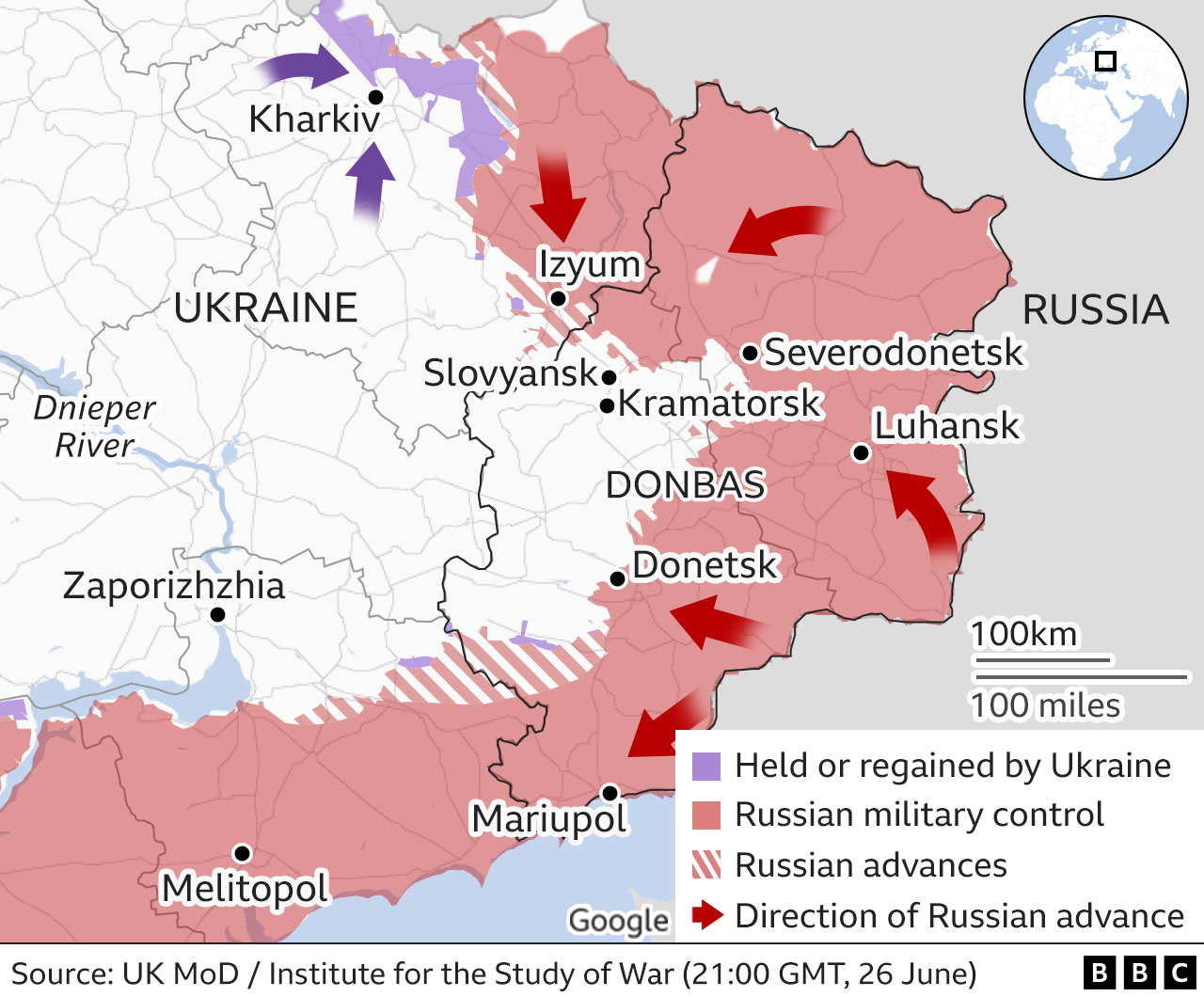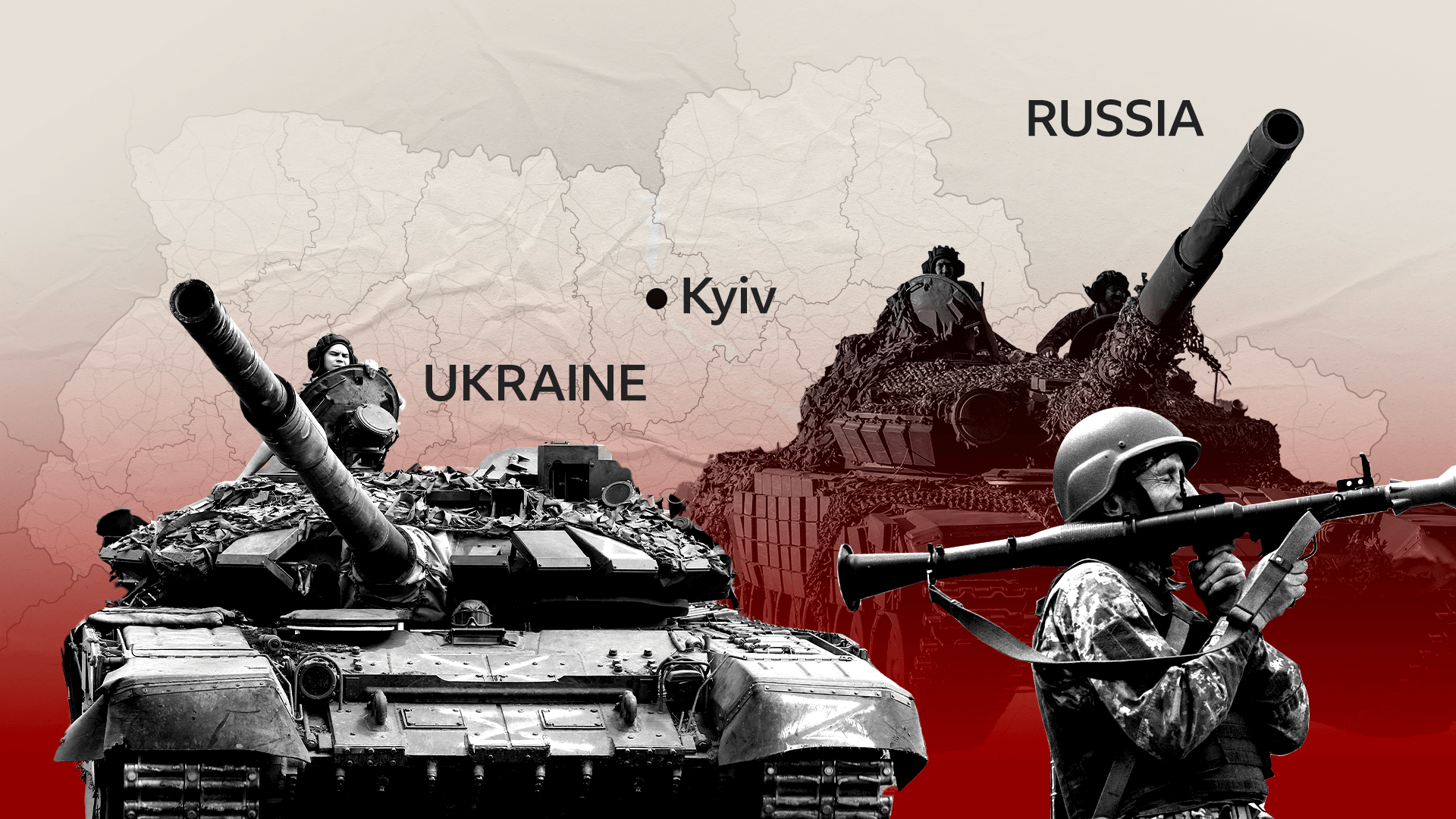Ukraine confirms Russia captured eastern city Lysychansk
- Published

The fighting caused a blaze at an oil refinery near Lysychansk
Ukraine's military has confirmed that the eastern city of Lysychansk has fallen to Russian forces.
"After heavy fighting for Lysychansk, the defence forces of Ukraine were forced to withdraw from their occupied positions and lines," the army general staff said.
Earlier Russia's Defence Minister Sergei Shoigu said his forces had captured Lysychansk and taken full control of Luhansk region.
Ukraine's troops were outgunned there.
Its general staff said that "in order to preserve the lives of Ukrainian defenders, a decision was made to withdraw".
It said the Russians had multiple advantages in artillery, aircraft, manpower and other forces.
President Volodymyr Zelensky pledged that Ukrainian forces would return to Lysychansk thanks to their tactics and "thanks to the increase in the supply of modern weapons".
Earlier, the head of Russia's Chechen Republic, Ramzan Kadyrov, published video apparently showing Chechen fighters in the centre of Lysychansk.
Further west, the Ukrainian-held city of Slovyansk came under heavy shelling, with at least six people killed.
It is in Donetsk region, which with Luhansk forms the industrial Donbas.
Just before he launched the war, President Vladimir Putin recognised all of Luhansk and Donetsk as independent of Ukraine. Russian proxy forces began an insurgency there in 2014.
Just over a week ago Russian troops captured Severodonetsk, a city reduced to ruins by weeks of Russian bombardment.


Lysychansk overlooks Severodonetsk, across the Seversky Donets river. There was some hope that, built on high ground, it would provide a natural strong defence. But the noose around the city had tightened, with Russian forces controlling most access in and out.
Some Ukrainian units had already pulled back to the next lines of defence over the past week.
Ukrainian officials had been unusually quiet on Sunday about the fighting in the city. That might, in part, be explained by "operational security" reasons. They would not want to broadcast any tactical retreat. But losing Lysychansk will be seen as another setback in the east.
The fall of Lysychansk is by no means the end of the fighting in Donbas. Ukraine still controls large urban areas in neighbouring Donetsk. Their forces have been preparing new defensive lines between Bakhmut and Slovyansk - though they too are now under heavy Russian shelling. Both sides have been taking heavy casualties.
The question now is whether Ukraine can halt the advance, and whether Russia can maintain the momentum.



Slovyansk and Kramatorsk are the two biggest cities in the Donetsk region still in Ukrainian hands.
The heavy Russian bombardment of Slovyansk on Sunday caused some 15 fires, Mayor Vadym Lyakh said, and video showed huge plumes of smoke rising over the city. He said it was the worst shelling there in recent time.
A video clip on Twitter, external showed big blasts from a distance - in Slovyansk, according to the caption. It was posted by Iuliia Mendel, ex-spokesperson for President Zelensky. The BBC was unable to verify the latest conditions in Slovyansk.
In other developments:
Russia accused Ukraine of deliberately targeting civilians with a missile strike on Belgorod, a Russian city 40km (25 miles) from Ukraine's northern border. The local governor said four people had been killed and Russia's defence ministry said three Ukrainian Tochka-U missiles had been shot down, but debris had fallen on an apartment block. Ukrainian officials dismissed the Russian claim, saying Moscow had staged a "provocation" in the city.
Ukraine's ambassador to Turkey said local customs officials had seized a Russian cargo ship carrying Ukrainian grain. Earlier, Ukraine's prosecutor-general asked Turkey to detain the Zhibek Zholy, anchored off a port east of Istanbul.

War in Ukraine: More coverage
STOLEN GRAIN: Tracking where Russia takes Ukraine's grain
ANALYSIS: Why Russia couldn't hold Snake Island
FACT CHECKED: Russia's claims about shopping centre attack
READ MORE: Full coverage of the crisis, external

